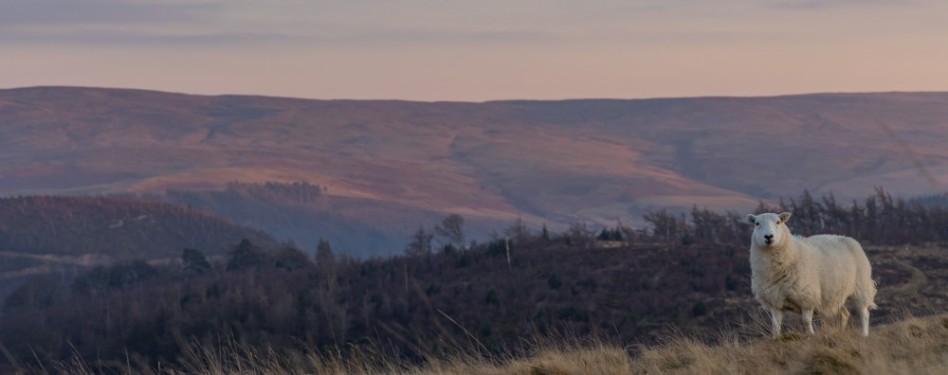Three important reports were recently released, outlining the UK’s progress on responding to the threat of climate change and overseeing the agricultural transition.
The NFFN has responded to all of these documents, calling for ambitious Government plans and actions that combine food production with ensuring nature and biodiversity thrive while creating resilient farm businesses for the future.
Firstly, the Climate Change Committee published its latest look at the UK’s progress towards net zero, stating the UK is currently way off track for meeting its targets with only around a third of planned emissions reductions covered by credible proposals.
NFFN CEO Martin Lines said: “This report sets out starkly the scale of the challenge ahead to ensure a viable future.
“Farms are already on the front line of the climate crisis, with volatile winter weather severely affecting production this year, and I welcome the committee's recognition of this.
"Agriculture, like every other sector, must play its part, and the good news is that nature-friendly farming can deliver solutions to many of the key priorities the committee has identified while also ensuring food security. Given the right level of Government support, farming can help drive down emissions as well as adapt to increasingly volatile growing conditions.
"From planting trees and boosting soil health to restoring peatland and supporting the growth of renewable energy on buildings and farmland, there are multiple ways farming can play a key role in reaching net zero.”
A few days later the National Audit Office (NAO) released its third look at how the Department for Environment, Food and Rural Affairs (Defra) is handling the move away from area-based payments for farms to agri-environmental schemes governed by the concept of “public money for public goods”.
It raised numerous concerns about the ongoing agricultural transition, including a lack of clarity on the programme’s overall direction and how Defra’s multiple scheme changes make it hard for farmers to plan for the future with confidence. The report also raises serious questions over whether the programme will be able to support farmers in adopting more nature-friendly and climate-smart land management at the pace and scale needed.
CEO Martin Lines said: “This report clearly sets out the alarming lack of urgency and ambition of previous Westminster governments in driving the agricultural transition. As the scale of the challenge that climate change poses to farmers and food production becomes ever clearer, the need for action has never been more urgent.
“Defra’s decision to prioritise getting farmers into the SFI by giving them a completely free choice over which options they adopt is not only inadequate to the scale of the task at hand but is repeating the mistakes of previous schemes. We urgently need a whole-farm approach to the SFI while also giving more attention to the Higher Tier and Landscape Recovery schemes which have the potential to do most for the environment and nature.
“This report gives the new Labour Government a list of things that need to be fixed to help get us back on the right track. Ministers should rapidly move away from the current pick-and-mix approach to SFI, ensure the other elements of the scheme are well funded and rolled out as quickly as possible and commit to increasing the agricultural budget in line with the scale of need. We rapidly need to see a clear, long-term vision for the sector which recognises the future of farming depends on a healthy, thriving natural environment.”
Finally, the Scale of Need report, a joint publication between the RSPB, National Trust and the Wildlife Trusts, found the current nature-friendly farming budget is inadequate to meet goals around tackling the impact of climate change and restoring nature.
Martin Lines said: “This report should be a wake-up call for decision makers across the UK and drive a step-change in investment for farming and land management.
"Tackling the climate and biodiversity crisis is not just important in its own right; it is crucial for farm business viability and UK food security. We have already seen the impact a wet winter and widespread flooding has had this year, and we know we can expect much more weather-related volatility in the future. Our ability to grow plentiful food long-term depends on improved soil health and water quality, increased resilience to flooding and drought, and nature thriving on farms. Paying for this is not a negative cost to society but a vital investment to secure our long-term food production capacity.
"As the new Government starts work in Westminster, we need to see increased ambition for the UK's farming budget and rapid scheme progress in England so the farming community can swiftly transition to nature-friendly farming at the scale required.”


